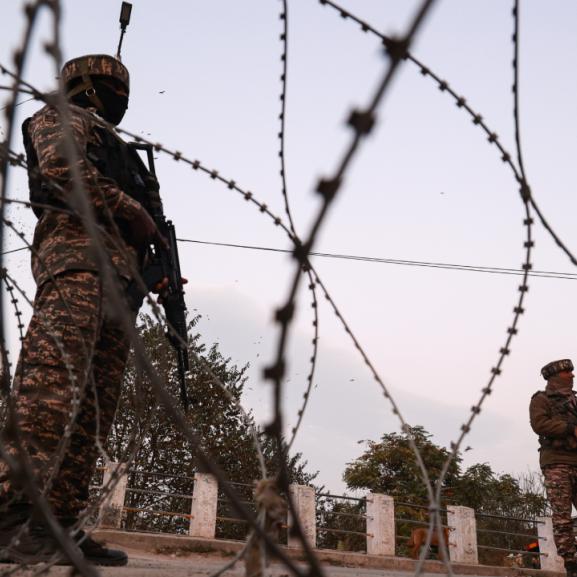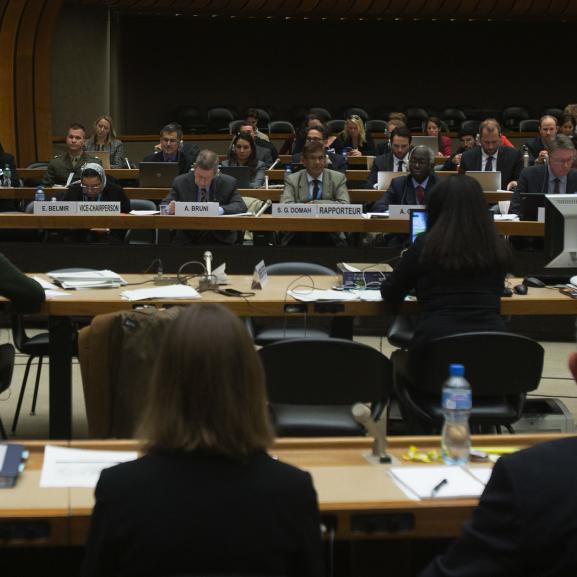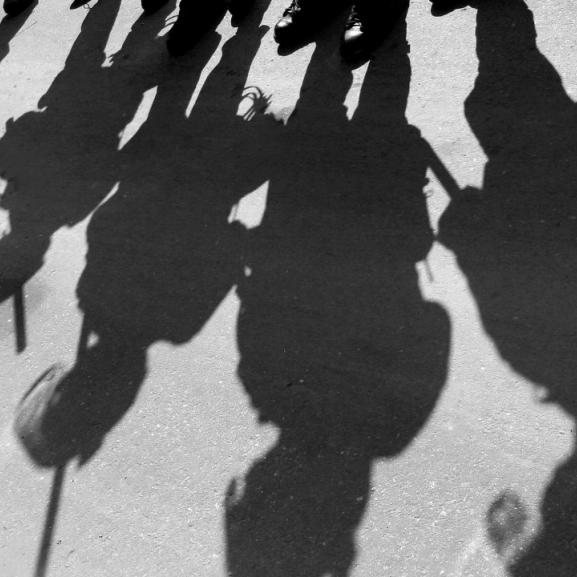Congress-Bush Deal Prompts Fears That "War on Terror" Detainees Face Further Torture
Real fears remain that the US Central Intelligence Agency (CIA) will continue to use techniques amounting to torture against detainees held in the "War on Terror", despite the Bush Administration abandoning its efforts to rewrite the humane treatment requirements of the Geneva Conventions, the Medical Foundation (MF) warns.
The Administration wanted a redefinition of the Geneva Conventions' Common Article 3 which governs the conduct of parties in a conflict and bars "outrages upon personal dignity, in particular humiliating and degrading treatment" of prisoners.
In a deal struck with the US Congress to clear the path for new anti-terror legislation, the Administration has agreed to abide by the conventions. "Cruel and inhuman treatment" will be a prosecutable war crime, but there is a catch. The authority for interpreting how Common Article 3 is applied is now vested in the President, with the list of techniques that remain permissible "classified".
Before the deal with Congress was struck, a list was published of techniques that the CIA was said to be seeking to have exempted from legislation. They included: induced hypothermia; forcing suspects to stand for prolonged periods; sleep deprivation; the "attention slap" or open hand slapping, the "belly slap"; and sound and light manipulation.
The MF has persistently warned that such techniques, particularly if used in combination, amount to torture. In a letter to The Guardian newspaper in the UK, the MF's director of policy and external affairs Leanne MacMillan said the CIA list "includes a number of sensory deprivation techniques that the UK military used against a group of republican prisoners in Northern Ireland in the early 1970s."
"They were found then by the European Court of Human Rights to amount to inhuman and degrading treatment, she added: "Today, in all likelihood, given the adoption of lower pain and suffering thresholds by the court, these methods would be held to be torture.
" Physical duress the CIA is apparently allowed to administer, including slapping with an open hand, was found by the UN Committee against Torture in a case against Israel to amount to torture. Palestinian clients of the MF, who have suffered such treatment, say that after a period of time the blows become agonising.
"The US Administration cannot hide behind redefining torture to justify techniques that are torture - pure and simple."
Following the administration's deal with Congress, Ms MacMillan said: "There can be little doubt that by classifying certain interrogation techniques the Administration is still prepared to endorse methods that any faithful interpretation of the Geneva Conventions would prohibit. It effectively licenses the use of these methods."
Among US commentators on the agreement, Professor Martin Lederman, who teaches constitutional law at Georgetown University, Washington DC said harsh treatment of detainees would continue." "They appear to have negotiated a statutory definition of cruel treatment that doesn't cover the CIA techniques, " he warned.
Increasing concern is the fact that while the US Supreme Court in 2005 ruled that the Geneva Conventions' Common Article 3 covered Guantánamo Bay and secret prisons run by the CIA, under the agreement no civil suit against the US Government on behalf of detainees will be able to invoke the conventions while invoking them in a criminal case is open to doubt.
Many prisoners will also have no prospect of access to lawyers, hitherto the prime source of information about the treatment meted out to detainees, for while high level detainees will be brought before military commissions, the Administration has announced that only a score of those will be established, leaving the vast majority of prisoners with no likelihood of a trial.
Those held indefinitely will have their cases assessed by combatant status review tribunals, but habeas corpus challenges will not be allowed - a stunning breach of one of the most fundamental principles of international law.
Those who do face military commissions will be told the evidence against them, and cannot be convicted on secret evidence. However, statements obtained through cruel, inhuman and degrading practices will be allowed, if the interrogations were carried out before the McCain Amendment to Detainee Treatment Act of 2005, which reaffirmed the prohibition of such practices.
The commissions' rules of procedure have also left the door wide open for hearsay evidence, meaning that a defendant could be convicted on statements that are second or thirdhand.
"Torture and detention without trial are the hallmarks of dictatorships and repressive regimes worldwide, " says Leanne MacMillan." They should not be weapons of choice for a democracy seeking to uphold the rule of law.





